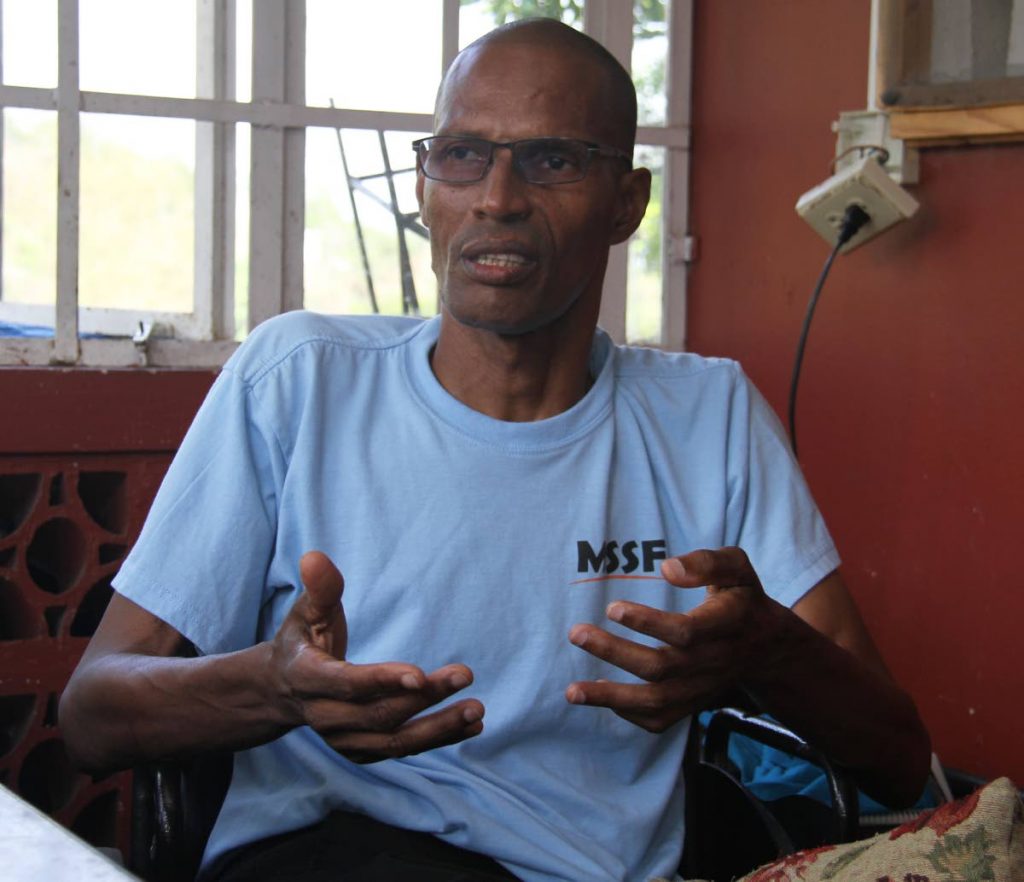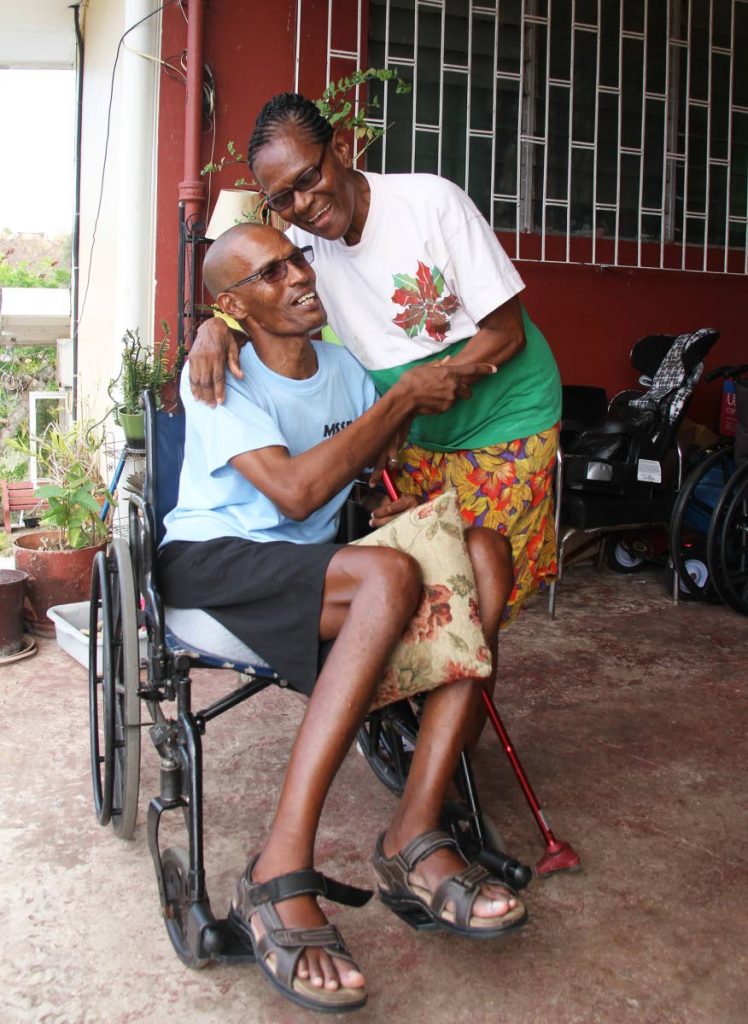Living a full life

USING a wheelchair to navigate his Buena Vista, St Joseph home, 55-year-old Hesmond Grant beams as he explains that multiple sclerosis (MS) will not limit him from living a normal life.
Grant, a father of three and grandfather of one, gave Sunday Newsday countless stories of people telling him to slow down. Diagnosed in 2010 – by then he was using a cane for aided mobility – he was bewildered about what this disease was, and it’s cause and even now, the treatment and ever evasive cure.
“How you have MS ? Is only white people does have MS,” one friend told him after he was diagnosed. The journey to his diagnosis was long and tiresome. He recalled one doctor ordering a magnetic resonance imaging (MRI) that cost him $4,000, only to be told he had to do it again because the scan was not done on his brain and spinal cord, as is needed in diagnosing MS. He was promised a discount on the second MRI but the $50 off was too low, so he left. Years later, by another doctor, Dr Bedasie, he was diagnosed with MS.
“Before that I knew something was wrong but I could not pinpoint what it was. But after I couldn’t hit a boundary or score a blistering bullet, I knew something was wrong but no doctor could tell me. You know how depressing that is, that you are sick and nobody knows why?”
Grant said he started noticing he would fall often and get weak. His major concern came when he and five other friends began going to the gym and after six months he was the only one who was not gaining muscle mass. On more than one occasion, he had no control over his bowels and bladder and the following day he was back to normal. For a man who was accustomed to going “90 miles an hour”, his body’s slow but sure deterioration was “killing” him.

After his diagnosis however, he ditched the cane and opted for a wheelchair. When that was not fast enough for him to move around in, he got two motorized scooters and he continued his limes at plays, parties and fete matches throughout the country. The disease eventually caught up to him and the left side of his body is paralysed. His left leg can’t move and the arm becomes limp ever so often. Yet, Grant remains a caterer and operates his business, with the help of others, out of his home, which he shares with his mother, Helena.
Having the most advance case of MS, primary progressive (PPMS), Grant has no medical relief since there is no treatment available. The one medication he used, Beta Interferon, was stopped two years after being diagnosed. He was advised of one medication that will cost $500,000 annually, this is for two doses, for the rest of his life.
On May 2, pharmaceutical giant Roche, held a symposium with medical manager for the Central America and the Caribbean Dr Arnoldo Soto and MS patients, at a conference at Hyatt Regency, Port of Spain. At that conference, Soto spoke of Roche’s latest drug Ocrelizumab, which is not yet available, have shown positive signs in treating MS patients with PPMS. Some of the drugs used locally to treat MS are Fingolimod, Rituximab and Beta Interferon. Rituximab is described as a wonder drug but was designed to treat leukaemia, however, doctors have seen progress in patients using it to treat MS.
“We are guinea pigs, if someone comes and say I have a drug to help you, you will take the chance, it will be expensive. A lot of MS patients are wrongly diagnosed so that is another problem we suffer with,” Grant said. He added that he had come to terms with the fact that he will become bedridden but hopes this will be delayed for the next two to three decades.
Grant said with no medication he does aqua and rehabilitative therapy using neurosurgical lights. Sea baths help him, so he tries to go to the beach as often as he can. Based on the extended disability status scale (EDSS) used to define the progression of disability, Grant is at seven. At this stage, he will get progressively worse unless he receives medication that will either slow or stop the progression.
While mornings are good times for him and he can get much work done, by afternoon, he is tired – a side effect of MS is fatigue. In spite of this, he is the head of the community council, the early childhood care and education council and active in his church and community sporting clubs. Grant knows now that he can make 30 sandwiches before he is tired. He no longer cooks but is guides his staff and whenever possible will find himself lifting crates of glasses and boxes of plates in his rental business.
“I made a decision to do what I can do. First thing is to accept you have MS. Is either you do that, or take it on and lie down on a bed and get worse faster. It has not changed me. It was a slow process from bad to worse. I know I will end up bed-ridden, I need to slow down the process, it have nothing I can do. I have to enjoy life as much,” said Grant, smiling.
“Why should I be down and depressed? Man if my scooter wasn’t down I would not have been home. I tell people to embrace the positive, yes, I do be in pain but I don’t talk about that. You will die with MS and not die of it.”
World MS Day is celebrated on May 30. This is the third story in a series leading up to that day. Next week’s article will focus on the MS support foundation (MSSF) founded by Dr Daphne Phillips.


Comments
"Living a full life"